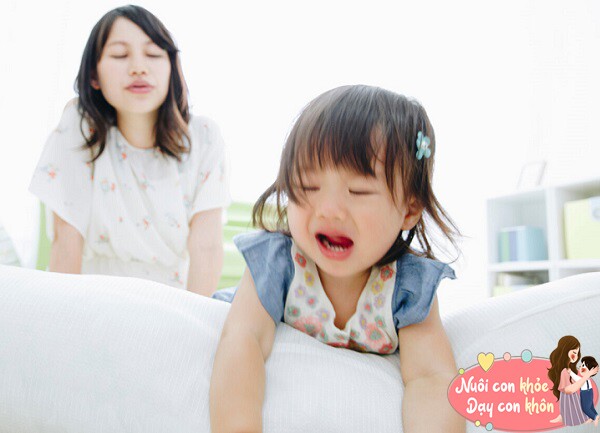Resilience is an inherent trait that we all possess to varying degrees. It is our ability to bounce back from life’s challenges and adversity, be they big or small.
What matters most is whether a child can recover from negative emotions and the impact it has on their psychology.

What is psychological resilience?
Psychological resilience draws its concept from physics, describing one’s ability to “rebound” and return to their original state after facing external pressures.
In simpler terms, it is the ability to recover from failure or adversity.
How a child responds to a challenging situation, such as feeling despaired and trapped, reflects their psychological resilience.
Some children fall into despair after failing an exam and struggle to see the light for a long time.
Others may refuse to go to school after being criticized by a teacher.
Some children even want to give up and run away when faced with minor difficulties…

Children need to develop psychological resilience to overcome failure and adversity.
Those with low psychological resilience are more prone to depression, hopelessness, and poor stress management when faced with challenges and failures in the future.
On the other hand, children with high psychological resilience possess strong mental endurance and a positive mindset. They can face difficulties and failures head-on, adjust their psychology, and improve their situation through practical actions.
American psychologist Lori Gottlieb describes this well in her book, “Maybe You Should Talk to Someone”.
When we are vulnerable, we are like raw eggs; if dropped, the shell will break, and the yolk and egg white will spill out.
However, if we become more resilient, like hard-boiled eggs, even if we are dropped and shaken, we will not break completely.
Experts hope that every child can become like a hard-boiled egg, with a stronger mind and psychological immunity to failures.

How to improve a child’s psychological resilience?
Life is often chaotic and unpredictable, and a child’s development is not always smooth sailing.
To navigate life’s challenges and become more resilient, children need to develop inner strength to cope with the difficulties they face.
Fortunately, psychological resilience can be improved.
Here are some tips for parents:
Teach children to interpret situations optimistically
Sometimes, it’s not the difficulty itself that holds children back, but how they interpret it.
When facing failures and hardships, children can be constrained by three thinking patterns, which further exacerbate their predicament:
– Personalization – Believing that bad things happen because of something they did.
– Generalization – Believing that negative events affect all aspects of life.
– Persistence – Believing that the effects of an event will last forever.

Teach children to interpret situations with optimism.
American scholar Martin Seligman stated: “Explanatory style is the key determinant of learned helplessness. Optimistic explanation prevents helplessness, whereas pessimistic explanation promotes it.”
How a child interprets an obstacle or temporary failure will determine their level of helplessness or motivation.
For example, if a child fails a test, an optimistic interpretation could be: “I didn’t do well on this test. Maybe I haven’t been serious enough in class lately.”
A pessimistic interpretation: “I knew I couldn’t do it. I’m just too stupid.”
The different internal monologues a child has when facing failure can profoundly impact their mental health.
Children learn how to interpret events from their parents’ attitudes. They observe how their parents analyze the causes and consequences of various events daily. There are two specific aspects to this:
The optimism of the parents
If parents are optimistic, their children are more likely to be so, too.
For instance, when facing a car breakdown, a pessimistic parent might say, “Why is this happening to me?” whereas an optimistic parent would say, “Looks like it’s time for a proper car service!”
Optimistic parents instill love and hope in their children. In contrast, constant expressions of pessimism and negative emotions increase psychological pressure and anxiety.
So, if parents want their children to have a positive attitude, they must lead by example.
How parents communicate when teaching their children
The criticisms children hear daily can also influence their interpretation patterns.
For instance, when analyzing failures, many parents tend to criticize their children’s personalities or character with a harsh tone.
Therefore, parents should be mindful of the following when communicating with their children:
– Avoid using words that suggest permanent pessimism, such as always, never, forever, etc.
– Avoid using words that lead to general pessimism, such as all, everything, nothing, a mess, etc.
– Avoid using words that lead to personal pessimism, such as stupid, talentless, useless, worthless, etc.
Allow children to experience sadness and disappointment naturally
Let go appropriately and give your child the opportunity to experience failure. Accept their emotions and offer encouragement and support.
From a child’s psychological development perspective, trial and error is a crucial way for them to discover their abilities, understand themselves and their environment, and accumulate experiences for growth.

Allow children to experience sadness and disappointment naturally.
Overprotecting and restricting children can hinder their growth and ability to develop essential skills. More importantly, they will lack the experience and sense of control to know their capabilities. Over time, they may develop a tendency to avoid and retreat from challenges.
Provide a supportive and inclusive family environment
To build a strong heart, love and safety are fundamental. Parents should be their children’s pillar of support.
Help children realize that their family is a safe and loving haven, and no matter what difficulties they face outside, their parents will always be there for them with open arms.
At home, children should feel free to express their vulnerabilities without fear of criticism.
The Child With These 3 Traits Is a Sign of Success, and May Become a Great Person
The talented child often exhibits certain outstanding traits from a young age. These exceptional characteristics set them apart and hint at their future potential. While some may view these early signs as mere indicators of promise, they are, in fact, glimpses into the extraordinary abilities that these children possess. It is essential to recognize and nurture these talents, as they can shape not only the child’s future but also contribute significantly to the world around them.




































